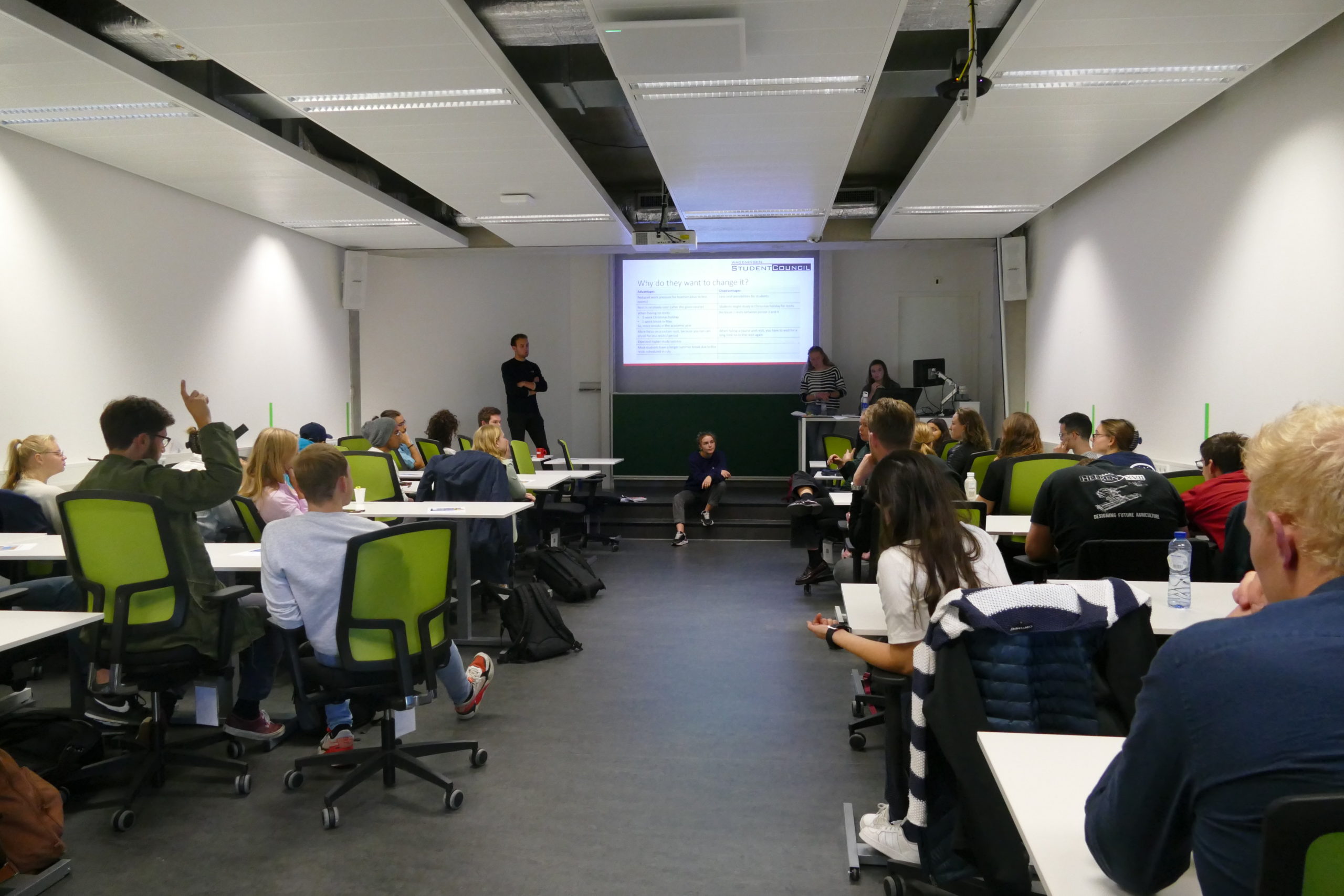The Executive Board has agreed with this proposal. The second proposal — limiting the number of resits that students can register for in each period to three — was rejected because the participational structure was not convinced that this actually reduces the work pressure.
The Executive Board and the joint meeting (GV) discussed the Executive Boards’ proposed decision on Wednesday 29 June. Joint meeting chair Jelle Behagel: ‘We thought that moving the summer exams forward was a good idea. It means that the large majority of students and lecturers can take a longer, uninterrupted holiday, students will get their binding study advice sooner, and lecturers will have more time to correct. It may also result in fewer students not showing up for the exams. Furthermore, students are still in a studying rhythm in July, increasing the chances that they pass exams. In short: a win for everyone.’
Behagel says that bringing the resits forward is also a good idea when it comes to reducing work pressure. ‘Who are most affected by work pressure? Staff members between 30 and 50 years of age. Who are most affected by the summer resits, which means that they have to interrupt their holidays? Parents with children who go to school.’ According to Behagel, the majority of the lecturers are happy about bringing it forward. ‘We will measure its impact in the next academic year.’
Limiting the number of resits
The Executive Board’s second proposal would mean limiting the number of resits for which students could register in each period to three. This is unlimited at the moment. Behagel: ‘The Executive Board argued that this would lessen work pressure, but we do not think this is a convincing argument. About 12 percent of students register for more than three exams. If you have nine resitters at the moment, it would then be eight. As a lecturer, you still have to create the exam, arrange for invigilators, etc., and you only have one less exam to mark. We understand that the Executive Board wants to do something about work pressure, but we are not convinced that this is the solution.’
We cannot ignore this any longer; the work pressure is too high for that.
Arthur Mol, Rector Magnificus
The board must find other solutions to address work pressure. One of the options is to limit the number of exam opportunities to two per course, per year. ‘Wageningen is the only university that offers three exam opportunities per course per year; all other universities offer two,’ says Behagel. ‘Limiting this is something that lecturers would like. The possible advantages of this are that the academic year may be shortened, and this would really reduce work pressure for lecturers. The question, however, is what it means for students. It will be more difficult to get them on board with this.’
Longer holiday
Rector Magnificus Arthur Mol is “very happy” that the summer resits are being moved forward. ‘I think this is good news for the majority of lecturers and students, as it gives them a longer, continuous holiday. There will also be a few lecturers that will find this difficult, but we have listened to them carefully beforehand. In particular, the younger lecturers with young children were in favour.’
Mol saw little enthusiasm among the GV for the proposal to limit the number of resits per period to three. ‘Students do not want to give up resits and the proposal does not go far enough for lecturers as they say that it will not sufficiently reduce work pressure. This is why the GV did not want to accept it.’ According to Mol, the biggest gain is that the GV unanimously established that work pressure among lecturers is indeed a major problem and that the current resit policy is a major cause of this. ‘We must therefore work towards reducing the number of resits,’ says Mol. ‘For the first time, everyone agrees that something must be done about it. That is a win.’
New proposal in October
The Executive Board will come with a new proposal in October, which will amount to a reduction of the number of exam opportunities per course per year from three to two. Mol: ‘This could be done in two ways: a resit for the first three periods in February and for the last three periods in July — or all resits in July — and removing the resit period in February. In that case, the academic year will be shorter. We still have to examine whether the latter is feasible.’
Mol assumes that the GV will approve that proposal ‘as there is consensus that the number of resits should be reduced.’ Mol says that, even if that proposal is not passed in the participational structure, it does not mean that it is the end of the story. ‘As the Executive Board, we can no longer ignore this; the work pressure our lecturers experience is much too high for that. This file has been open for five years already. If no approval is given, then a procedure with the Supervisory Board will be started, and — if necessary — the Arbitration Board. We, as an organisation, must take responsibility towards the lecturers after five years of seeking agreement on work pressure reduction.’

 Photo Sven Menschel
Photo Sven Menschel


